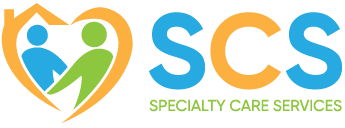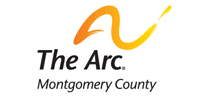In-Home Medication Management & Administration
Maryland, Washington DC, and Northern Virginia
24/7 Nurse Availability
Free In-Home Assessments
Over 25 Years of Experience
Hours:
Request Call Back
Hero Request Form
Thank you for contacting us.
We will get back to you as soon as possible.
Please try again later.
Safe, Reliable Medication Management & Administration at Home
If you’re overwhelmed by managing medications after a hospital stay, or while caring for a loved one with dementia, stroke, or diabetes, we can help! Our team provides reminders, pillbox setup, and safe administration to keep you or your loved one healthier and safer at home.
If you or your loved one feels overwhelmed with managing medications, you’re not alone. Many of our clients struggle with missing doses, double dosing, or timing mistakes - especially when taking multiple medications, adjusting to new meds after a hospital stay, or having additional physical and cognitive challenges (like Alzheimer’s/dementia or being a stroke victim). That’s where our team steps in to help.
Our nurse-led In-Home Medication Management & Administration program brings safety, organization, and peace of mind into your home. We provide professional support for everything from reminders and pillbox setup to injections, inhalers, and eye-drop administration. With us, you get consistent, reliable support designed to keep you safer, healthier, and more confident at home.
Who We Serve
Most of our clients who utilize us for in-home medication management & administration experience:
- Polypharmacy (5+ medications) or complex regimens: In U.S. adults 65 or older, around 40% take 5+ prescriptions per month. [1]
- Cognitive impairment: forgetting medications, duplicating doses, or refusal to take meds. Cognitive decline is linked to poorer medication management and higher hospitalization risk. [2]
- High risk of adverse drug events (ADEs): including anticoagulants, insulin, opioids, or sedatives.
- Recent hospital or ER visit: leading to new medications or care needs.
- Vision or dexterity challenges: difficulty reading labels, opening bottles, or drawing up insulin.
- Low health literacy or lack of support
- Caregiver strain: when loved ones or caregivers are overwhelmed.
- Additional Health Conditions:
- Alzheimer’s & dementia: forgetfulness, refusal, and sundowning.
- Diabetes: insulin administration, GLP-1/injectables, and hypoglycemia risk.
- Cardiovascular: heart failure, anticoagulation (warfarin/DOACs), rate/rhythm control.
- Post-stroke: cognition/hemiparesis, and complex secondary health conditions.
- Parkinson’s disease: precise timing of levodopa and swallowing issues.
- COPD/Asthma: inhaler technique, and steroid tapers.
- CKD: renal dosing changes, phosphate binders, and EPO injections.
- Post-hospital or post-op: new pain meds, antibiotics, and eye-drop schedules.
- Glaucoma/ophthalmic surgery: multi-drop administration or spacing.
In-home medication management & administration is common: Seniors and those with medical challenges utilize our care to reduce the risk of emergencies. Older adults account for 600k+ ED visits/year for adverse drug events, and our care seeks to decrease this number. [3]
Signs It’s Time to Get Help (Checklist)
If you or your loved one has experienced one or a combination of these signs and symptoms, it may be time to seek expert help:
- Missed, double, or late doses in the past 30 days.
- New prescriptions after a hospital/ER/clinic visit without a plan that can be followed.
- High-risk drugs in use (insulin, warfarin/DOACs, opioids, sedatives).
- Cognitive or memory changes (forgetting if a dose was taken).
- Vision, dexterity, or tremor issues (can’t read labels, open bottles, draw up syringes).
- Swallowing problems (pills need crushing/alternatives; aspiration risk).
- Falls or dizziness linked to meds.
- Refusal or anxiety around taking meds.
- Caregiver strain (primary caregiver burnout).
- Need for injections/eye drops/inhalers with technique checks.
- Recent adverse drug events.
- Language/health-literacy barriers to understanding medication instructions.
- Lack of a current, reconciled med list across all providers.
How We Provide Care
In-Home Nursing:
- Nursing assessment and care plan: A full assessment to identify your health details (diagnosis, current medication list, allergies, and vital signs) to design a customized care plan to meet your health needs.
- Medication reminders and prompting: help with on-time cueing, adherence to healthy routines, and evening/overnight check-ins are available.
- Medication setup and reconciliation: Weekly pillbox fill, communicate with pharmacy to clarify meds and doses, coordinate refills, and set up needed equipment.
- Medication administration: administer insulin & other injections, eye drops, inhalers/nebulizers, and other complex medication protocols.
- Equipment and supplies coordination: track sharps containers, pen needles, pill cutters, and teach safe storage and disposal.
- Monitoring, safety, and escalation: track vitals, symptoms, blood sugar, blood pressure, and physical red flag signals that indicate a need for escalation of care.
Personal Home Care:
- Bathing, Dressing, and Grooming
- Companionship Care
- Fall-Prevention
- Light Housekeeping and Laundry
- Meal Preparation & Feeding Assistance
- Post-Rehab Exercises
- Errands Services & Shopping Assistance
- Transportation & Appointment Escort for follow-up procedures or medical check-ins
Respite Care:
- Short-term relief for family caregivers
- Care provided in the home so loved ones can rest, travel, or attend to other responsibilities
- Flexible scheduling to meet urgent or planned needs
24/7 Care:
- Around-the-clock home support for individuals with high or complex care needs
- Overnight monitoring to ensure safety, comfort, and prompt response to needs
- Continuous personal care, companion care, and nursing oversight as required
What Areas We Serve
We serve Montgomery County, MD, Prince George’s County, MD, Howard County, MD, Frederick County, MD, Washington, DC, Fairfax County, VA, and Arlington County, VA.
How It Works – Step-by-Step
1. We perform your nursing assessment
We review your diagnoses, current meds list, allergies, recent hospital/ER visits, lifestyle factors, vitals, and home setup. We identify high-risk meds and red flags to keep you or your loved one safe.
2. We create your personalized care plan
We develop your customized plan based on your assessment and needs, which can include a dosing schedule that matches meals/sleep, which caregiver gives what, a refill calendar, weekly pillbox setup, large-print schedule, reminder system, and an escalation plan. We contact your prescribers/pharmacy to clarify orders, sync refills, and arrange blister packs if helpful.
3. We match a caregiver for your needs
We pair you with an RN for setup/administration and a trained home health aide for reminders & prompting.
4. You receive care consistently
We deliver care to you or your loved one at their home consistently. We schedule our appointments based on when it works best for you. From occasional short-term respite care to 24/7 home care and everything in between, we provide the care that’s necessary for you.
5. Ongoing nurse reassessments & updates
Our nurses track blood sugars/BP, symptoms, side effects, and adherence trends, and can update the plan with any health changes. We can notify your prescriber promptly of red flags or escalate care due to emergencies if needed.
Sources
- JAMA Network.
Polypharmacy Among Older Adults in the United States.
https://jamanetwork.com
Accessed September 2025. - PubMed Central (PMC).
Cognitive Impairment and Medication Management Difficulties.
https://www.ncbi.nlm.nih.gov/pmc
Accessed September 2025. - Centers for Disease Control and Prevention (CDC).
Adverse Drug Events in Older Adults.
https://www.cdc.gov/medicationsafety/adult_adversedrugevents.html
Accessed September 2025.
- Bullet text
- Bullet text
- Bullet text
- Bullet text
- Bullet text
- Bullet text
- Bullet text
- Bullet text
- Bullet text
- Bullet text
Can you start the same day or within 48 hours after a hospital or ER discharge?
Yes – we can schedule our initial assessment within 24-48 hours after you or the hospital gets in touch.
Do you offer evening, overnight, or 24/7 medication reminders and administration?
Yes, we provide overnight & evening care to clients with Alzheimer’s/dementia or sleep-related red-flag symptoms, as well as 24/7 care for clients who require or request it.
Do you work with my doctors and specialists to reconcile medication changes and prevent interactions?
Yes – our nursing and care team coordinates with your doctors and current medical team to provide up-to-date care based on your needs.
What private-pay options, long-term care insurance, or veteran benefits are available for medication help at home?
We accept Medicaid, most long-term care insurance, VA benefits, and private pay as ways to receive care.

CP #1 Headline
CP #1 Body
CP #1 CTA Lead-in
Not valid with any other offers or promotions. Restrictions apply.
Must mention this coupon at the time of scheduling.
Reviews



